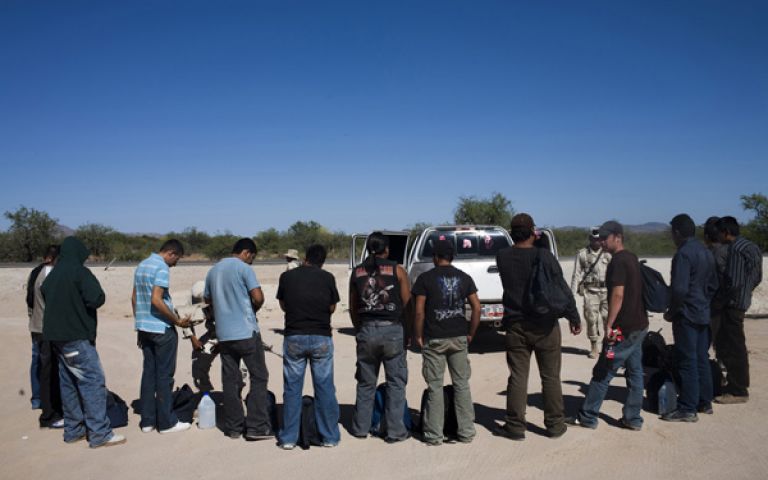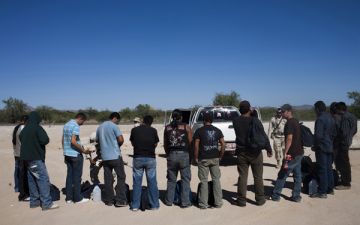Once a sleepy agricultural town, the entire economy of Altar, Sonora is, at this point, based on human smuggling. Sitting just an hour drive south of the Arizona-Mexico border, Altar is the last and most critical stop before migrants take to the dangerous desert crossing. Sacha Feinman and David Rochkind travel to Altar to examine the business of human smuggling, and to chart the evolution of an industry that has changed radically in the last two decades.
Small, independent operators that long helped undocumented workers find their way into the U.S. have been replaced by far more sophisticated operations controlled in part by Mexico's deadly drug cartels. The recent history of the U.S.-Mexico border is a story of escalation. As the U.S. government poured more money and resources into sealing off the border, the journey into the U.S. became more difficult, more dangerous, more expensive and more profitable. Thus the arrival of the cartels. With unprecedented levels of violence spilling over the border and into the U.S. a question arises: have we reached the point of no return?

